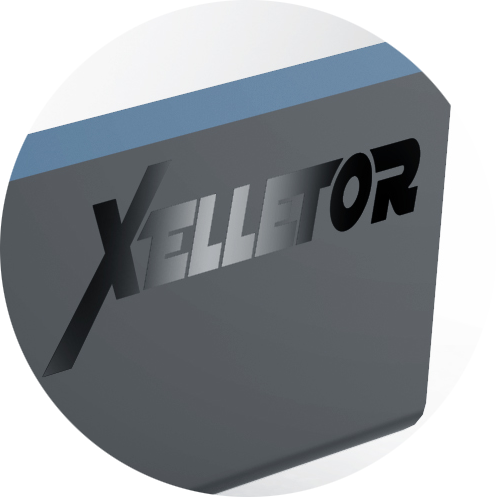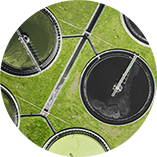Separation technology for wastewater treatment
Minimized operating costs
Dry solids content, energy requirements, maintenance, and polymer consumption are the main drivers of cost in sludge thickening and dewatering. You can significantly reduce your operating costs thanks to the special design of our wastewater decanters.
Service
Flottweg offers you reliable support, for example, through online monitoring. Our global offices and service and sales centers mean you’ll always have a point of contact at your side.
Up to 50% less energy consumption
With Flottweg Xelletor decanter centrifuges, you can consume 20% less energy compared to current, common sewage sludge centrifuges. Compared with older machines, you can save more than 50%. Act sustainably!
24/7 operation
Many of our customers operate their Flottweg decanter centrifuges around the clock for long periods of time. After 10 years, these machines often reach 70,000 to 80,000 operating hours. Our Flottweg decanter centrifuges are widely regulated and equipped with monitoring systems. Around-the-clock operation is thus possible at all times.
Complete solutions for sludge treatment

The new Xelletor decanter centrifuges
High-level sludge dewatering
Flottweg has developed a unique centrifuge concept specifically for the high-level dewatering of sewage sludge: The Flottweg X series. It is the result of 60 years of experience in wastewater treatment. The dewatering capacity of the X series is significantly higher than that of conventional sewage sludge centrifuges.

One-stop sludge treatment
High performance with reduced energy consumption
The treatment of wastewater sludge is usually carried out in several stages. For efficient plant operations, it is important to thicken the sludge before draining and dewater it after draining. Flottweg decanter centrifuges are used in both thickening and dewatering. The C-series decanters from Flottweg achieve high performance with reduced energy consumption.

Thickening of sewage sludge
Optimum sludge thickening
To ensure a stable degradation process in the biological treatment stage, excess sludge is removed and fed into the drainage tower. Flottweg's OSE decanters thicken the sludge before it enters the drainage tower. Wastewater treatment plants can thus make optimal use of the tower's volume and achieve high separation qualities at the same time.

Treatment of industrial wastewater
Sustainable recycling of process water
Depending on the industry, the wastewater, and the ultimate use of the sludge, the processes for treating industrial wastewater vary. Some sludge characteristics demand special material requirements. Our decanter centrifuges are tailored to the respective framework conditions. The goal: to treat the process water so that it can either be fed to a municipal wastewater treatment plant or reused for the process.
How to treat sludge efficiently? This is what our customers & experts say
Massive cost savings at Seinäjoki wastewater treatment plant in Finland
The comprehensive fact check on decanter centrifuges with expert Klaus Peisl
Frequently Asked Questions (FAQs)
As a rule, the amortization depends on the size of the wastewater treatment plant. Factors like machine runtime must also be considered. For some wastewater treatment plants, the amortization period was one year. Generally, the larger the wastewater treatment plant, the more cost-effective the investment. We can determine in advance whether the investment is worthwhile for your wastewater treatment plant by means of on-site tests.
All wastewater generated by commercial manufacturing, fabrication, or processing operations is referred to as industrial wastewater. Depending on the respective industry sector, industrial wastewater can contain a wide variety of substances such as greases and oils, suspended matter, cleaning agents, or acids. This distinguishes industrial wastewater from municipal wastewater and makes it necessary for companies to treat the resulting wastewater in an intermediate step using special wastewater technologies. Only then can this wastewater be sent to public wastewater treatment plants or reused for internal purposes.
Decanter centrifuges are robust machines. Wear and the associated maintenance intensity always depend on the sludge to be processed. In order to prevent failures, mechanics should perform minor maintenance of the mechanical system once a year to treat normal wear and tear. This usually does not last more than one day. Major maintenance is usually only necessary every 3 years. This is performed by a Flottweg mechanic. Depending on the size of the system, this may take several days. During major maintenance services, the machine is completely checked.
In addition to the dry matter content, the degree of separation is an important influencing factor in dewatering. According to the DWA, this should be at least 98% after dewatering. If the value is lower, this places a strain on the wastewater treatment plant. All non-separated solids pass through the treatment system again and must be treated and aerated once more, which strains the entire system. Flottweg always strives to achieve a degree of separation of 99%.



